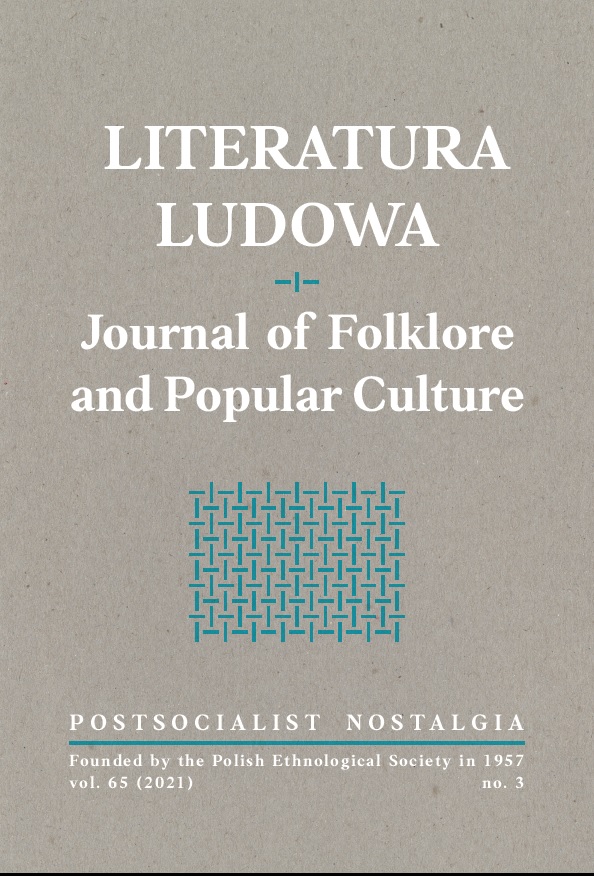Peasant resistance: From obsequiousness to revolution
DOI:
https://doi.org/10.12775/LL.3.2021.008Keywords
people’s history of Poland, serfdom, civil resistanceAbstract
Review: Michał Rauszer, Siła podporządkowanych, Wydawnictwo Uniwersytetu Warszawskiego, Warszawa 2021.
References
Dubisz, S. (red.) (2018). Wielki słownik języka polskiego PWN (T. 5). Warszawa: Wydawnictwo Naukowe PWN.
Hechter, M. (1999). Internal Colonialism: The Celtic Fringe in British National Development, 1536-1966. New Brunswick, New Jersey: Transaction Publishers.
Kolasa-Nowak, A. (2020). Sprawczość i przeszłość w socjologicznych analizach polskiego społeczeństwa. Studia Socjologiczne, 3, 79-105. doi: https://doi.org/10.24425/sts.2020.132471
Korczyński, P. (2021, 7-13 kwietnia). Chłopi i inne diabły. Polityka, s. 24-25.
Leder, A., Olczyk, E. (2021, 23 kwietnia). Sześć pokoleń od podestu. Plus Minus, s. 4-6.
Leszczyński, A. (2020). Ludowa historia Polski. Historia wyzysku i oporu. Mitologie panowania. Warszawa: Wydawnictwo W.A.B.
Ludden, D. (2002). A Brief History of Subalternity. In D. Ludden (ed.), Reading Subaltern Studies: Critical History, Contested Meaning and the Globalization of South Asia (pp. 1-39). London: Anthem Press.
Majcherek, J. A. (2021, 3-9 marca). Narodowo na ludowo. Polityka, s. 28-29.
Maternicki, J. (1985). Pamiętnik jako dokument kultury historycznej. Przegląd Humanistyczny, 11/12, 231–262.
Rauszer, M. (2020). Bękarty pańszczyzny. Historia buntów chłopskich. Warszawa: Wydawnictwo RM.
Rauszer, M. (2021). Siła podporządkowanych. Warszawa: Wydawnictwa Uniwersytetu Warszawskiego.
Rościszewski, K. (2021, 23 kwietnia). Historyczni hunwejbini. Plus Minus, s. 7.
Wilczyńska, E. (2017). Możliwość wykorzystania tekstów folkloru w dociekaniach historycznych. Uwagi badacza kultury wsi polskiej XIX i początku XX wieku. Rocznik Antropologii Historii, 7, 107-130.
Zybała, A. (2021, 23 kwietnia). Obciążeni przeszłością. Plus Minus, s. 8-9.
Downloads
The publisher's shop:
Published
How to Cite
Issue
Section
License

This work is licensed under a Creative Commons Attribution-NoDerivatives 4.0 International License.
1. The authors give the publisher (Polish Ethnological Society) non-exclusive license to use the work in the following fields:a) recording of a Work / subject of a related copyright;
b) reproduction (multiplication) Work / subject of a related copyright in print and digital technique (ebook, audiobook);
c) marketing of units of reproduced Work / subject of a related copyright;
d) introduction of Work / object of related copyright to computer memory;
e) dissemination of the work in an electronic version in the formula of open access under the Creative Commons license (CC BY - ND 3.0).
2. The authors give the publisher the license free of charge.
3. The use of the work by publisher in the above mentioned aspects is not limited in time, quantitatively nor territorially.
Stats
Number of views and downloads: 482
Number of citations: 0



